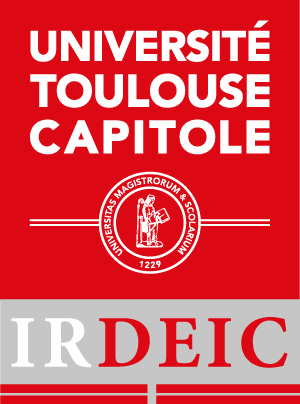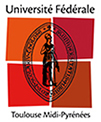The areas are managed by homogeneous international organisations to which member states have ceded competences for the purpose of resolving difficulties that exceed the power of a state acting alone.
More often than not, the ceded competences are economic and/or monetary but can also cover different fields such as culture or human rights.
The integration process is facilitated by the exercise of these competences.
The process is evident through the existence of new institutional structures with independent means for achieving common objectives.
These institutional structures develop new powers, especially legislative and judicial in nature.
Those powers, as well as the member states of the integrated bodies, are subject to human rights, which should be promoted and defended.
Human rights, being both values and objectives, become a fundamental element to integration.
This programme intends to study the role of human rights in the process of integration.
PROGRAMME FOCUS:
STUDYING THE INFLUENCE OF HUMAN RIGHTS ON INTEGRATION
Extensive studies have been conducted to analyse integration entities in themselves or to determine the extent of those entities’ protection of human rights especially when some among them have the main goal of the development of such rights or have created bodies specifically for protecting those rights.
Few studies have been devoted exclusively to an analysis of the role of human rights in the integration process.
Yet, depending on the course of action, human rights can act as an accelerator or brake.
As values common to the entities concerned, they can stimulate advancement to the common objectives.
As limits on powers, they can frustrate other objectives, especially economic goals.
Clearly, human rights are influential in the process of integration.
This programme seeks to determine the influence of human rights on integration.
This study looks at a phenomenon that extends across several organisations that are based on cooperation and integration and located on different continents (Africa, Americas, Asia, Europe).
It seeks to bridge these different entities and bring fresh perspectives to this phenomenon.
The most reliable instrument for adjudicating this influence is in the case-law of the supranational courts and bodies responsible for interpreting the founding treaties of the organisations.
Without restricting the study of texts and actions of the institutions of these organisations, the programme prioritises case-law study.
METHOD:
OPEN MULTIDISCIPLINARY STUDY OF AN OVERARCHING PHENOMENON
Although a law-based programme, IDHEAL can look to other disciplines within the human and social sciences.
A historical description is useful along with viewing the relationship of human rights and integration through a political prism.
In consideration of its essentially legal nature, IDHEAL employs a triple analysis of European law, international law and comparative law so that the influence of human rights on integration can be understood.
The accessible experience of both the European Union and the Council of Europe, including the European Convention for the Protection of Human Rights and Fundamental Freedoms, will serve to place European law as a starting point for the programme.
The roots of international integration organisations within international law naturally justifies a perspective drawn from that body of law.
The global influence of human rights on integration requires a study of comparative law to better understand the analysed phenomenon, especially to determine to what extent it completely or partially affects integration.
STRUCTURE :
IDHEAL is built on three pillars: (1) a record of the human rights’ case-law of the supranational and regional courts and bodies; (2) a symposium focusing on ‘Integration, cooperation and protection of human rights by supranational bodies’; (3) a summation work drawing from the research results.
Record of the human rights’ case-law of the supranational and regional courts and bodies.
This annual chronicle involves doctoral students of the IRDEIC and other interested legal laboratories of Toulouse Capitole University.
A call for doctoral students has been launched.
It was published in the ‘Petites Affiches’.
The first production was completed in September 2014.
‘Integration, cooperation and protection of human rights by supranational bodies’ symposium, October 2014.
Jointly organised by the IRDEIC and IMH, this symposium was sponsored by the International Institute of Human Rights. It focused specifically on the analysis of human rights’ role in intra- and inter-regional integration.
At the time, political conditionality, the interaction mechanisms and interaction conditions were studied.
Also dealt with were issues on relations between the courts of regional economic blocs and supranational courts specialising in human rights protection.
Members of regional supranational bodies involved in economics and human rights also participated.
Work entitled ‘Integration and human rights’.
This collective work is to be published at the end of the contract.
Its structure depends on the conclusions drawn from the research conducted as part of the annual case-law chronicle and the feedback from publication of the October 2014 symposium proceedings.
TEAM
Joël Andriantsimbazovina, professor, IRDEIC
Marc Blanquet, professor, IRDEIC
Olivier Blin, lecturer, IRDEIC
Hélène Gaudin, professor IRDEIC
Wanda Mastor, professor, IRDEIC
Baptiste Tranchant, professor, IRDEIC
IRDEIC and other laboratory doctoral students.
More often than not, the ceded competences are economic and/or monetary but can also cover different fields such as culture or human rights.
The integration process is facilitated by the exercise of these competences.
The process is evident through the existence of new institutional structures with independent means for achieving common objectives.
These institutional structures develop new powers, especially legislative and judicial in nature.
Those powers, as well as the member states of the integrated bodies, are subject to human rights, which should be promoted and defended.
Human rights, being both values and objectives, become a fundamental element to integration.
This programme intends to study the role of human rights in the process of integration.
PROGRAMME FOCUS:
STUDYING THE INFLUENCE OF HUMAN RIGHTS ON INTEGRATION
Extensive studies have been conducted to analyse integration entities in themselves or to determine the extent of those entities’ protection of human rights especially when some among them have the main goal of the development of such rights or have created bodies specifically for protecting those rights.
Few studies have been devoted exclusively to an analysis of the role of human rights in the integration process.
Yet, depending on the course of action, human rights can act as an accelerator or brake.
As values common to the entities concerned, they can stimulate advancement to the common objectives.
As limits on powers, they can frustrate other objectives, especially economic goals.
Clearly, human rights are influential in the process of integration.
This programme seeks to determine the influence of human rights on integration.
This study looks at a phenomenon that extends across several organisations that are based on cooperation and integration and located on different continents (Africa, Americas, Asia, Europe).
It seeks to bridge these different entities and bring fresh perspectives to this phenomenon.
The most reliable instrument for adjudicating this influence is in the case-law of the supranational courts and bodies responsible for interpreting the founding treaties of the organisations.
Without restricting the study of texts and actions of the institutions of these organisations, the programme prioritises case-law study.
METHOD:
OPEN MULTIDISCIPLINARY STUDY OF AN OVERARCHING PHENOMENON
Although a law-based programme, IDHEAL can look to other disciplines within the human and social sciences.
A historical description is useful along with viewing the relationship of human rights and integration through a political prism.
In consideration of its essentially legal nature, IDHEAL employs a triple analysis of European law, international law and comparative law so that the influence of human rights on integration can be understood.
The accessible experience of both the European Union and the Council of Europe, including the European Convention for the Protection of Human Rights and Fundamental Freedoms, will serve to place European law as a starting point for the programme.
The roots of international integration organisations within international law naturally justifies a perspective drawn from that body of law.
The global influence of human rights on integration requires a study of comparative law to better understand the analysed phenomenon, especially to determine to what extent it completely or partially affects integration.
STRUCTURE :
IDHEAL is built on three pillars: (1) a record of the human rights’ case-law of the supranational and regional courts and bodies; (2) a symposium focusing on ‘Integration, cooperation and protection of human rights by supranational bodies’; (3) a summation work drawing from the research results.
Record of the human rights’ case-law of the supranational and regional courts and bodies.
This annual chronicle involves doctoral students of the IRDEIC and other interested legal laboratories of Toulouse Capitole University.
A call for doctoral students has been launched.
It was published in the ‘Petites Affiches’.
The first production was completed in September 2014.
‘Integration, cooperation and protection of human rights by supranational bodies’ symposium, October 2014.
Jointly organised by the IRDEIC and IMH, this symposium was sponsored by the International Institute of Human Rights. It focused specifically on the analysis of human rights’ role in intra- and inter-regional integration.
At the time, political conditionality, the interaction mechanisms and interaction conditions were studied.
Also dealt with were issues on relations between the courts of regional economic blocs and supranational courts specialising in human rights protection.
Members of regional supranational bodies involved in economics and human rights also participated.
Work entitled ‘Integration and human rights’.
This collective work is to be published at the end of the contract.
Its structure depends on the conclusions drawn from the research conducted as part of the annual case-law chronicle and the feedback from publication of the October 2014 symposium proceedings.
TEAM
Joël Andriantsimbazovina, professor, IRDEIC
Marc Blanquet, professor, IRDEIC
Olivier Blin, lecturer, IRDEIC
Hélène Gaudin, professor IRDEIC
Wanda Mastor, professor, IRDEIC
Baptiste Tranchant, professor, IRDEIC
IRDEIC and other laboratory doctoral students.




 Print
Print



